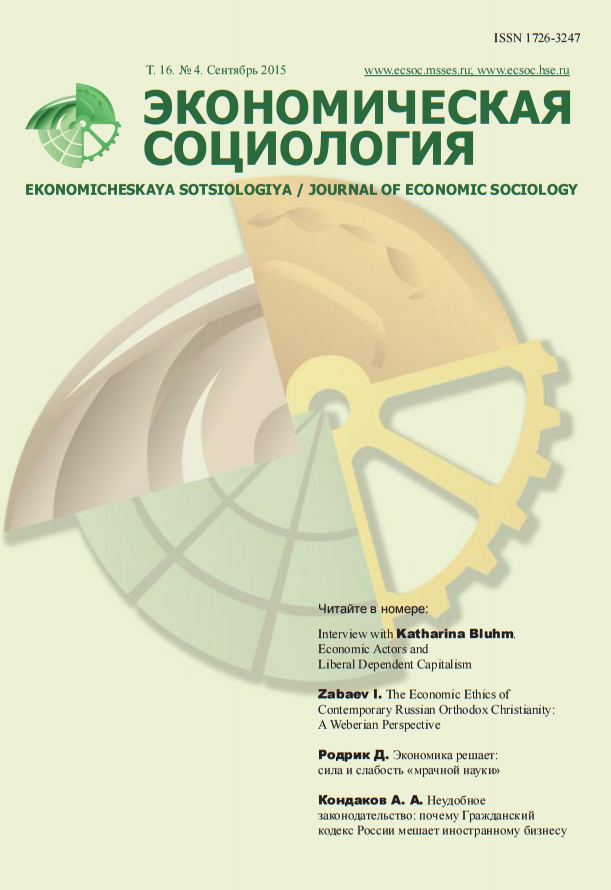Even with Government Standards — Judging Quality is Hard!
Book Review: Beckert J., Musselin Ch. (eds) (2013) Constructing Quality.The Classification of Goods in Markets, New York: Oxford University Press
Abstract
This review discusses the collection of articles edited by J. Beckert and C. Musselin, Constructing Quality: The Classification of Goods in Markets. The collection is focused on the processes of social construction of criteria for the quality of market goods in modern consumer markets. It is intended to contribute to the body of literature on the mechanisms for evaluation, classification, and commensuration, a request for which surfaces in a whole variety of social areas in a modern society (characterized by the rise of calculation and managerialism). This review covers both the main problems emerging in this thematic field and the answers suggested by the authors of the articles in this volume. Thus, the reader is encouraged to think about the ways in which social values are translated into market categories, which actors contribute to this process, which tools are used for consolidating the criteria of quality, where the conditions of confidence in these criteria are hidden, why there may be discrepancies and how they can be overcome, as well as a number of other issues. The common theme of the volume and the review is the idea that the quality of market goods is a relatively fluid polyvalent category, and interpretations of this term are often diverse depending on the type of good, the degree of its social entanglement, the institutional and socio-cultural environment of the market, as well as value-oriented attitudes and the structural positions of the subjects who must make judgments and evaluations of the market commodity. The problem of the quality of market goods is interesting for sociologists not as a practical problem, but as another angle which makes it possible to see the mechanics of the social order of the market in action. The market consensus concerning the quality of the goods exchanged for money conceals both the observance of the typical social norms of the given historical period and the adherence to the principle of parity of the parties, that is, the mutual recognition of the fairness of market transaction by the buyer and the seller. Thus, an issue which seemed secondary, how the social attitudes are formed with respect to the quality standards of market goods, has instead a central place among the dilemmas of how modern consumer markets function and reproduce.













